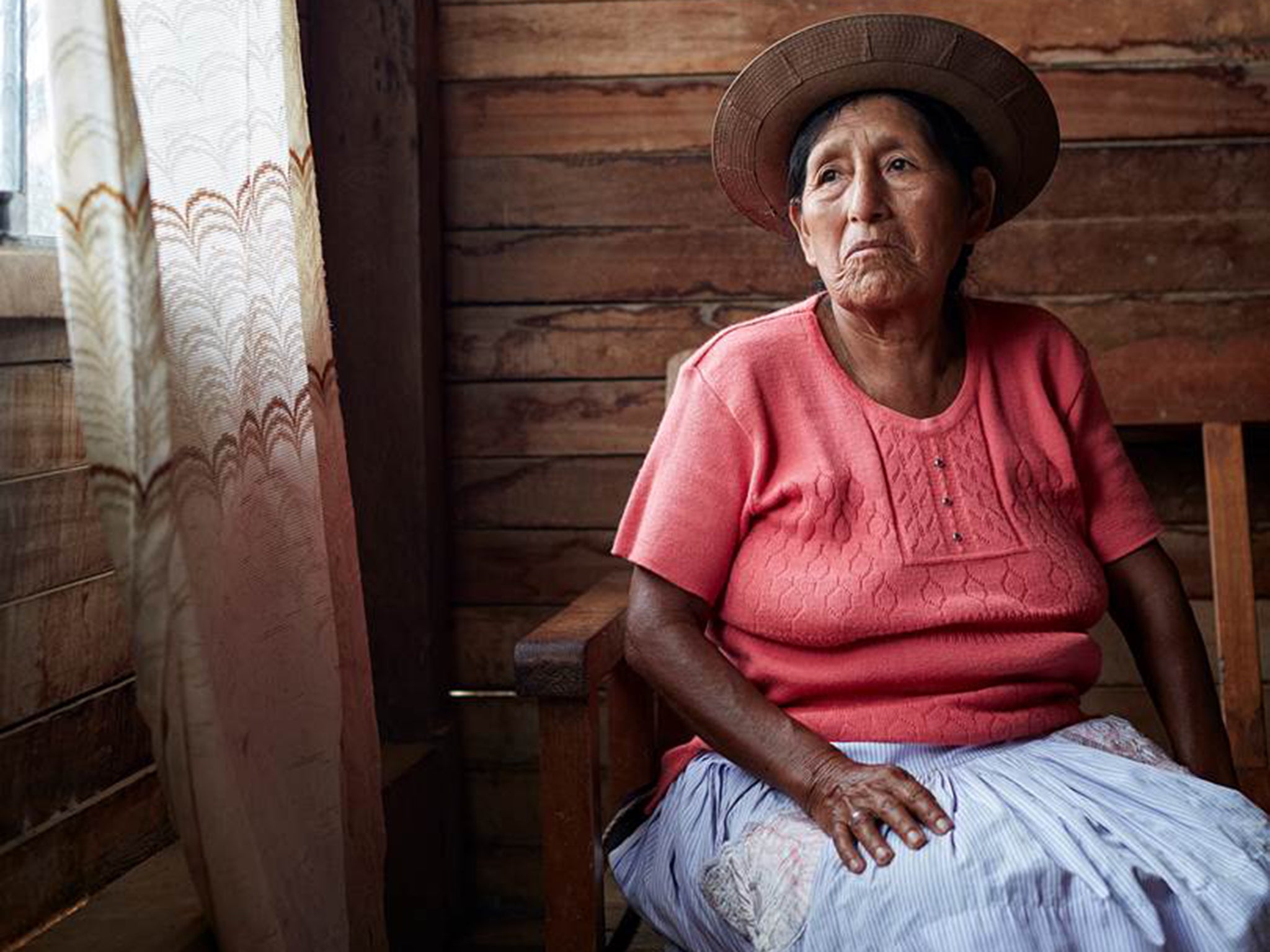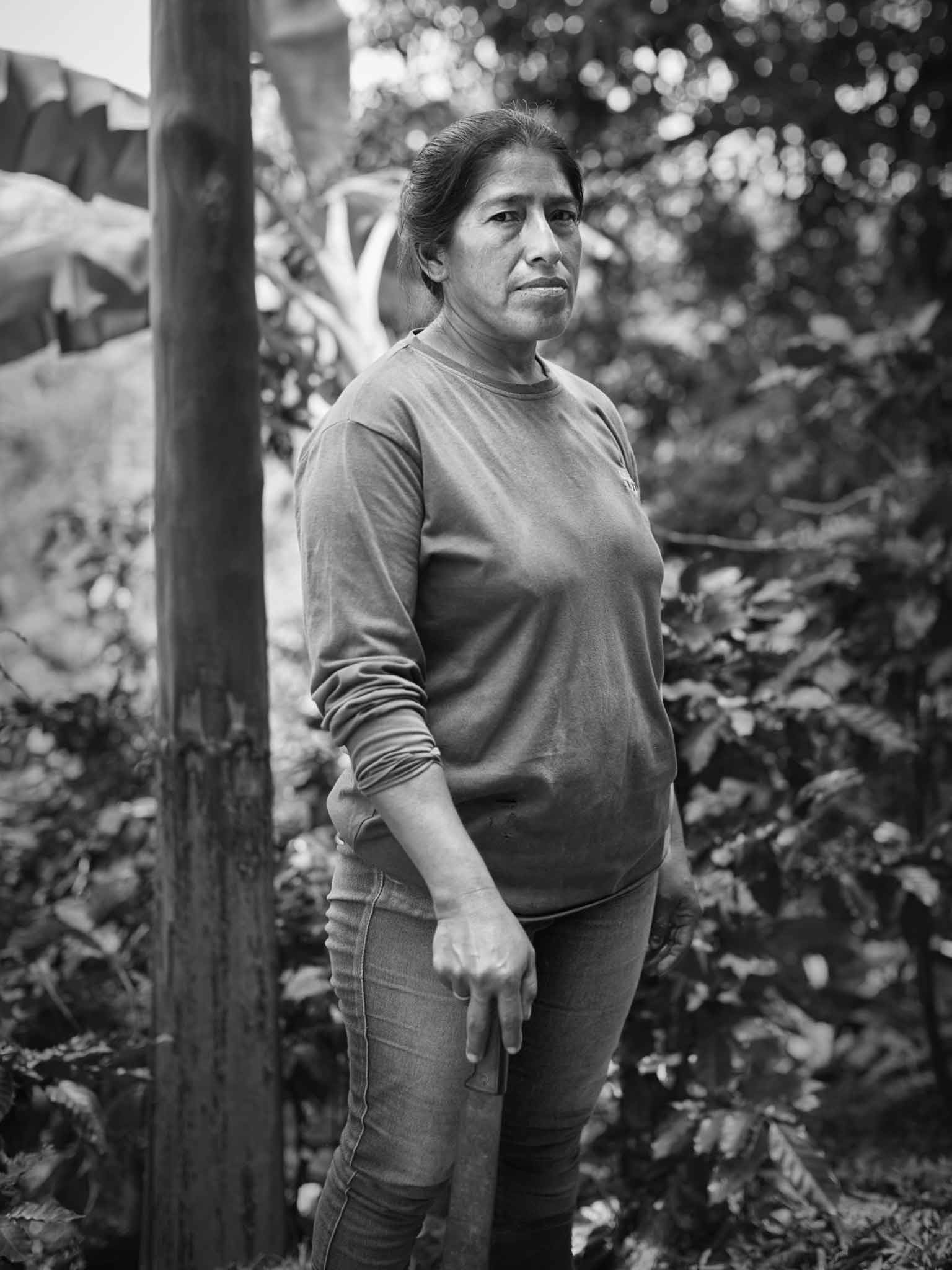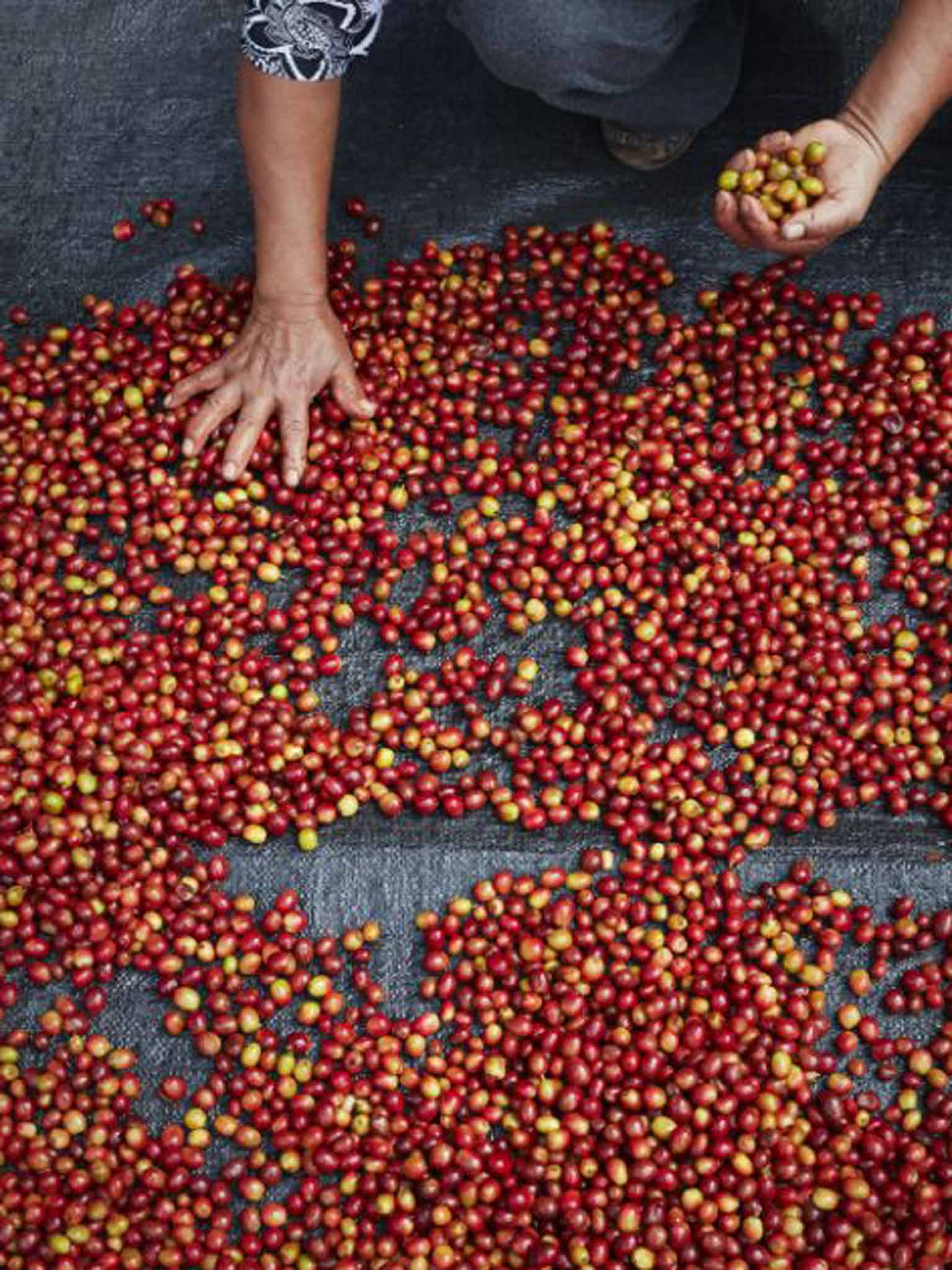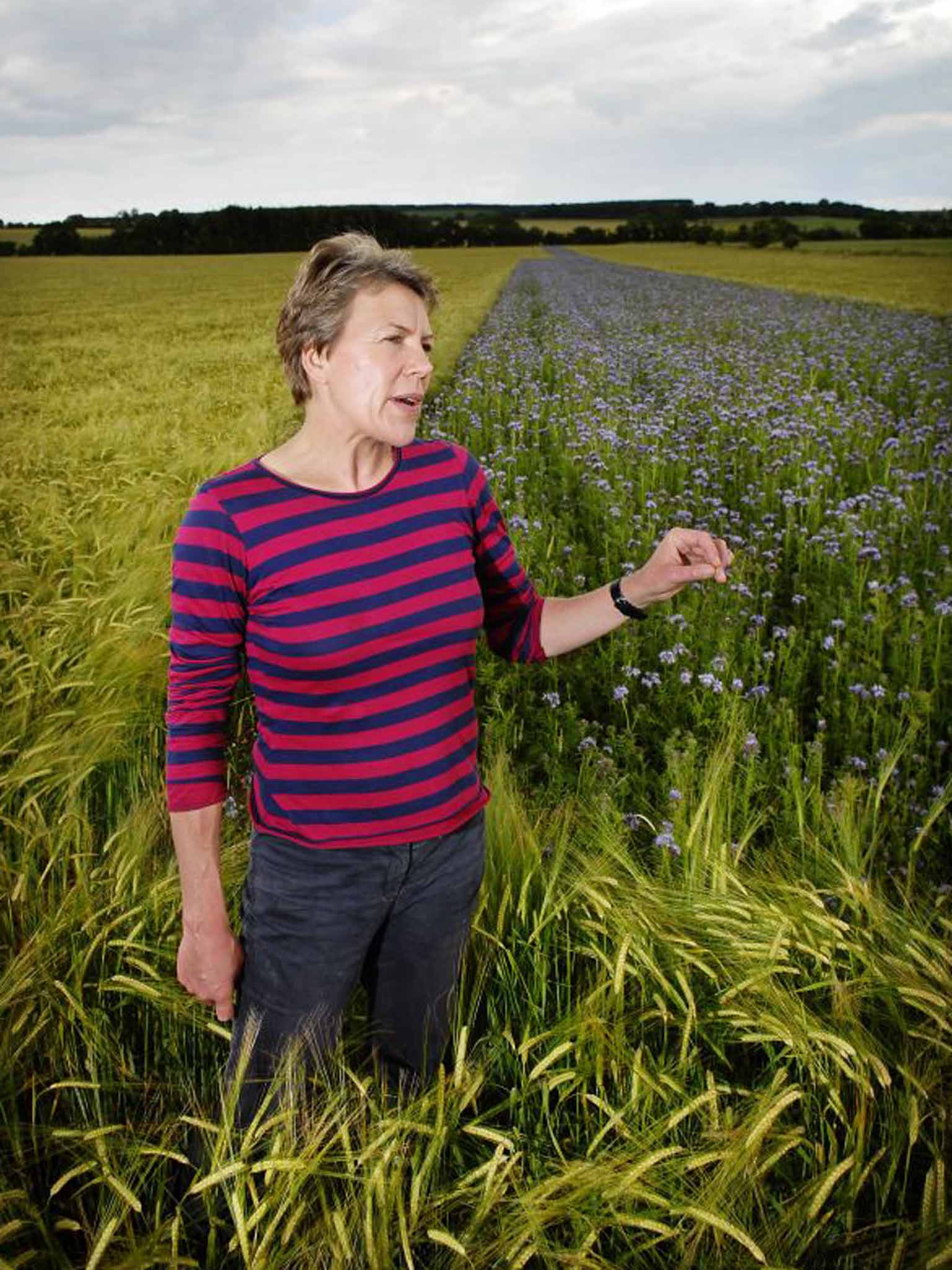International Women's Day 2016: Female farmers from Peru to Yorkshire are ploughing new furrows
Though a large proportion of the world's farmers are female, they seldom get to rule the roost, let alone reap the benefits. Daniel Tapper reports on signs of change.

Your support helps us to tell the story
From reproductive rights to climate change to Big Tech, The Independent is on the ground when the story is developing. Whether it's investigating the financials of Elon Musk's pro-Trump PAC or producing our latest documentary, 'The A Word', which shines a light on the American women fighting for reproductive rights, we know how important it is to parse out the facts from the messaging.
At such a critical moment in US history, we need reporters on the ground. Your donation allows us to keep sending journalists to speak to both sides of the story.
The Independent is trusted by Americans across the entire political spectrum. And unlike many other quality news outlets, we choose not to lock Americans out of our reporting and analysis with paywalls. We believe quality journalism should be available to everyone, paid for by those who can afford it.
Your support makes all the difference.It is only when I momentarily pass out from altitude sickness at 4,818 metres that it first occurs to me how isolated my destination is. I have just crossed the peak of Ticlio pass – the highest road in the Peruvian Andes – in what could be Lima's least roadworthy Nissan Sunny. And yet, a 13-hour drive into the central Amazon rainforest awaits. Morning becomes dusk; tarmac turns to rubble; and, eventually, the road simply stops at the ramshackle jungle town of San Martin de Pangoa. It could well be the last place on earth where you would expect a revolutionary feminist movement to be taking root. Here, a full day's drive from the cosmopolitan influence of Lima, catcalls and street whistles are as much a part of daily life as the tuk-tuk beeps and the wild howls of prowling street dogs. And that isn't the half of it; girls get married and give birth at 14, and more than 60 per cent of women admit to having suffered domestic abuse.
But it is here that I have come, with Peruvian translator James (“My parents were big fans of James Bond,” he tells me), to meet a group of women who are leading a project with potentially global ramifications. Made up from members of a local coffee co-operative, Codemu is a collective of local women, founded in 2009 to tackle inequality by promoting female leadership, improving family nutrition and encouraging self-esteem through workshops. Its real area of success, though, has been in farming.
Nicknamed the “pantry of Peru”, Pangoa is blessed with rain, humidity, rich soil and a jungle heat that rarely sinks below 22˚C, meaning that the surrounding area is awash with pineapples, cocoa, bananas, coffee and ginger – much of which makes its way to Britain. If there is anywhere a farmer should thrive, it is here. But in a region where the majority of women are employed in agriculture, female farmers earn almost 50 per cent less than males, account for 75 per cent of the adult illiterate population, and own less than 25 per cent of the land.
To tackle the issue, Codemu has formed an unlikely alliance with the independent Yorkshire coffee roasters Taylors of Harrogate. Together, they have launched “Esperanza”, a blend with the audacious remit of sourcing only beans grown by Pangoan women. It's a simple idea, inspired by a similar initiative in Nicaragua in 2001, but it's remarkably effective: the premium paid by Taylors of Harrogate for these beans has already transformed the lives of almost 100 local female farmers through a misture of education, entrepreneurial grants and training .
One of those already benefiting from the project is 42-year-old smallholder Norma Valderrama, who with the help of Codemu has managed to do the unthinkable in rural Peru: buy her own land.
“My past is very typical of this region,” she tells me, via James. “My husband was an abusive alcoholic and was never around much. Like most women round here, I played a very submissive role in the relationship. I worked extremely hard in the fields but had little control over the management of the farm or finances. On top of this, I was expected to do all the domestic work; I have given birth alone twice on the farm – the nearest hospital is more than an hour away – and both times, I had dinner on the table that same afternoon.”

But Norma's circumstances changed 20 years ago, when she began selling produce at a local market without her husband's knowledge. Two years later, she had saved enough money to leave him and swiftly put a deposit on her own plot of land. Since then, with psychological, technical and financial support from Codemu, Norma has developed the land into a 12-hectare coffee and banana plantation, which supports not only her and her two children but also a small legion of local workers.
“Before I bought my own land, I was completely reliant on my husband,” she adds. “Women in Peru are not expected to have their own opinions, to express emotions or to have a say in the day-to-day running of things. It's humiliating and degrading. But now, I'm completely independent and have learnt to respect myself.”
The lack of access to land, equipment and money faced by female farmers such as Norma is by no means limited to rural Peru. And the problem is increasingly identified as a global issue with consequences that go far beyond gender discrimination. Women account for an estimated two-thirds of the world's 600 million livestock keepers and make up 43 per cent of the agricultural workforce in developing countries. In some coffee-growing regions, the number rises to 80 per cent. Yet while the role of women is clearly crucial in food production, this rarely translates into an equal share of income. In Asia, Africa and Latin America women own less than 20 per cent of agricultural land; and where women do own farms, their plots are generally smaller and around 25 per cent less efficient than those held by men – not because women are less skilled but because they have less access to education and investment and, by extension, to essential equipment and materials such as seeds and fertilisers.
Inspired by the success of women such as Norma, Codemu is encouraging some of its other members to launch their own businesses – a solution that not only generates an additional stream of income but also gives women greater autonomy from their husbands. Embracing the idea is coffee grower Abdulia Carhuallanqui, whom I meet in San Martin de Pangoa's bustling “women's market”, held in the town's central square every Saturday.
“Several years ago, I was encouraged by other members of the women's committee to start contributing to the market,” she says. “At the time, all the other women sold fruit and vegetables; there was no cooked food. So I thought to myself, why not sell what I make best: tamales, a type of corn dumpling filled with ground corn, chicken, black olives and red pepper, all steamed inside a banana leaf. Fortunately, it's become really popular: on the first day, I sold 50 portions, and I now sell almost 300 every weekend.
Still, she adds, “Although the conditions here are excellent for growing coffee, that doesn't mean it is completely free from disease. And when disease does strike, it can wipe out an entire crop. But I now have a back-up income. I'm not only more self-sufficient than I used to be, I have more income for my family, better business skills, and more self-esteem. What's more, my daughter is now following in my footsteps: she's started learning to farm and is making and selling her own food at the local market. One day, she'll be a businesswoman , just like me.”

At a moral level, the case for reducing gender discrimination is obvious, but the issue goes further than debates around equality. With almost 50 per cent of the world's economically active women reporting agriculture as their primary source of income, the issue is affecting the health and economies of entire nations. According to Farming First, a coalition of 180 farming organisations, if women were given access to the same resources as men, they would achieve the same yield levels, boosting total output in developing countries by between 2.5 and 4 per cent. This additional yield could reduce the number of undernourished people in the world by 150 million.
But gender inequality in farming isn't just imited to developing countries. In the UK, women constitute 41 per cent of the agricultural workforce (compared with more than 50 per cent in Lithuania and Latvia) and yet own just 24 per cent of large farm holdings. Although it is hard to reconcile with our 21st-century lives, this is largely thought to be a hangover from feudal farming practices, where agricultural land was nearly always passed on to male heirs. The tradition is largely upheld by the false premise that agriculture is a business best suited to well-built males. (Just think of the uphill struggle of Far from the Madding Crowd's Bathsheba Everdene as she tries to cut a deal at the grain exchange; Thomas Hardy's fiction was true to life, and little has changed since the 1870s.)
Although the UK doesn't yet boast its own Codemu-like collective, it does have a growing army of women who are doggedly determined to make a career in farming. In 2012, data from the Office for National Statistics revealed that the number of female farmers in the UK had risen to 23,000, up by 6,000 in the space of a year. A decade previously, the figure was almost negligible. Meanwhile, one of Britain's most respected agricultural universities, Harper Adams, has seen a 10 per cent increase in the number of its female students since 2012.
Many recent female graduates cite the organic farmer Helen Browning as their inspiration. In 1986, Browning became one of the country's first high-profile female farmers when she took over her father's 1,350-acre holding, which she later transformed into an award-winning organic farm. She has since become the Soil Association's chief executive and in 1989 was appointed OBE for her services to farming.
“Because of agriculture's macho image and the age-old tradition of handing land down to sons, the work carried out by female farmers has never really been fully recognised,” she says. “Women have always been there in the background but they haven't had their name on the chequebook. So when I took over my father's farm, there was a lot of gossip from male farmers and I really had to prove myself.
“Fortunately, the new generation of female farmers coming through now don't face the same barriers I did. They're confident, hard-working and progressive, and in many ways are a damn sight better than the blokes. They tend to be drawn to more innovative ways of farming, particularly organic; and they are less caught up with what I call 'big-toy syndrome' and are more focused on running the show. But most importantly, they're generally more effective communicators than men and are better at dealing with customers. Men recognise this quality, and they respect it.”

Should we be encouraging more young women into the industry, then? “Absolutely,” she says. “It's not an easy sector to work in: you're not going to make a lot of money, and it's a lot of hard graft. But if you love food, animals and being outdoors, it can be the best career in the world. It's flexible, too. Yes, we work quite long hours, but you choose when you want to work, meaning you can juggle work and motherhood without any of that dreadful maternity leave business.”
The benefits young female farmers can bring to the industry have not gone unnoticed. One of those welcoming the shift is Tim Wilson, the 57-year-old owner of the Ginger Pig chain of butchers. Considered one of Britain's best heritage livestock farmers, Wilson has grown his empire to encompass seven central London shops and 3,000 acres of pasture across three farms in North Yorkshire. His cuts are served in some of the country's finest restaurants. His crowning glory, however, is East Moor Farm, near Wykeham, where an all-female team rears highly prized heritage breeds of longhorn, shorthorn and Galloway cattle. Overseeing the farm is local 27 year-old Hayley Freer, from nearby Malton.
“Traditionally, people went into farming because that's what their parents did,” Freer says. “But that's changing; neither of my parents work in agriculture – my dad is a plumber and my mum works for a pet-feed company. As for me, I studied psychology at Leeds University. However, about four years ago, I had a change of heart and decided I wanted to be a vet, and started volunteering at the Ginger Pig. After that, they offered to take me on part time so I could balance the job with veterinary studies. But I enjoyed the farming side of things so much that I decided to go full time. I'm now in charge of a herd of 120 pedigree cattle and oversee everything from feeding to calving.
“Do I encounter prejudice? No, not really, and when I do, I just laugh it off. We recently received a call from an old-boy farmer whose truck was stuck in the snow. When I arrived in my tractor to pull him out, he told me he'd rather slide down the hill backwards and die than have a woman tow him home. He was being deadly serious. Fortunately I don't often receive comments like that. Tim [Wilson] has been particularly supportive. He even believes women are more intuitive, empathetic and better able to tell when an animal is getting ill,” she laughs. “And I'd have to agree.”
It may be more than 6,000 miles from Malton but back in Pangoa I find a similar strain of resilience. Norma's husband recently returned to the family home. “I said he could return under three conditions,” she explains. “Number one: you sober up. Number two: you stop being violent. And number three: I am now the man and you are the woman. After seeing the success I had made of my farm and the life I had built for me and my children, he agreed to all three. And he's turned his life around. My dream is for more women to be as strong as I have been, because there are so many others who won't speak up. My message to them is: take control of your share of the land. That way, you can shape the future of your country – and maybe even the world.”
Join our commenting forum
Join thought-provoking conversations, follow other Independent readers and see their replies
Comments